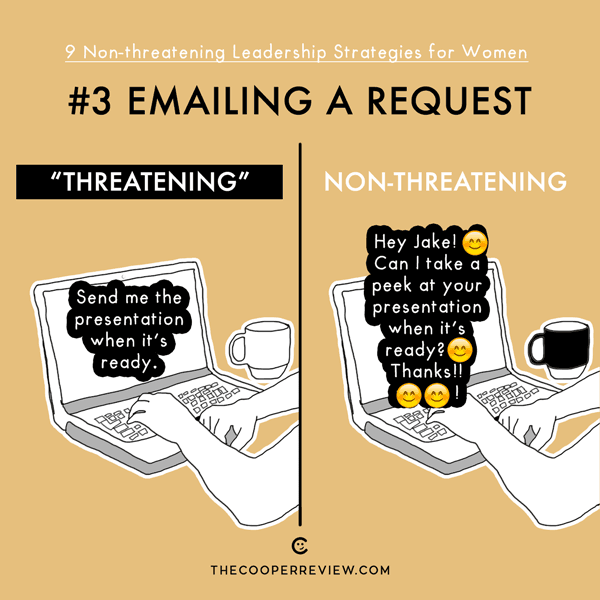You’re somewhere in Q4 — let’s say it’s the first week of December. If you’re in a startup, chances are good that you feel like you *just* nailed down Q4 goals. And now, before you can blink, the end of the year is upon you.
It’s time for some serious reflection — on the team, the year that was, what’s in the hopper for next year.
As you pull together the professional feedback, there’s one thing nagging at you. You have feedback for a person on your team that isn’t really professional feedback at all. At least not in the classical sense. It’s a character flaw. And you think it’s getting in the way of their success.
You don’t want to go through another year without it being addressed, but there’s no easy way to bring it up.
Now what?
It’s not personal except it’s totally personal
For years I would get a variation of the same feedback in every performance review.
You’re intimidating.
I was never sure what to do with this.
In retrospect, this was problematic feedback for a young woman in tech on a management track. But the first few times I heard it, I didn’t spend much time on the gendered nature of the feedback.
I mostly just wanted to stop hearing it. I didn’t stop to think about whether the feedback itself was fair or balanced.
I set about fixing it.
I’m loathe to admit it now, but I actually tried smiling more (yes, really). I tried using more exclamation marks in my writing. I tried incorporating smiley faces.
Perhaps unsurprisingly, it didn’t work. Year after year, job after job, review after review, I got the same feedback.
You’re intimidating.
I advanced in my career, I got raises and a few key promotions. But some version of it was always tucked away in otherwise straightforward performance reviews.
I finally worked up the nerve to ask my manager what he meant and what he thought I might do to address it.
He explained — if people feel like they can’t talk to you or if they feel scared to, you’ll miss critical information that you need to do your job.
He talked about how part of the gig is understanding the organizational context, both when things are flowing and when they are not.
If your staff won’t tell you when things have gone off the rails, you’ve got a problem.
You need to get them to talk to you. And you need them to feel safe with you or they never will.
And for the first time in my professional career, I understood what the heck people had been trying to tell me all this time.
Mind the gap
If you’re reviewing someone who has been in the work world for a few years, there’s a good chance you’re about to touch a live wire.
Telling people to work on a character attribute is sort of bullshit.
Telling the most introverted person on your team that he needs to speak up in meetings won’t go well. Not because he’ll yell at you. But because, worse than that, he’ll nod along and say yep he knows and then you’ll be having the exact same conversation the following year.
“Be more extroverted,” is pretty much useless feedback. It’s like saying “be taller.”
In my case, “be less intimidating” was not actionable. Yes, it’s closely tied to “people are scared to tell you things.” But the framing of the feedback is completely different.
One version is about an elemental construct of my character. The other is about the pursuit of a business objective — context — and how it impacts me as a leader.
Get the difference?
“We need you to be different than you are,” is not the same as “we need you to develop in these areas.” They are related but they come from a different starting point. And your staff are likely to be able to absorb one much more easily than the other.
Tackling the elephant in the room
I’ve done a couple of these in my time and here’s the thing I’ve found: telling people to work on a character attribute is sort of bullshit.
As you’re prepping your review, shift the focus of your feedback from the character attribute to the intended outcome. Force yourself to dig in on why you want your introvert to be more vocal in meetings.
Do you think you’re missing a perspective? An important strategic voice? Where are you seeing the impact of this team member’s quietness?
The shift from personal to intended outcome lets you discuss more concrete changes in terms of how they benefit both the company and the individual.
In my case, once my manager shifted the conversation to the impact of me being perceived as intimidating, there was a lot more he could do to support me and a lot more I could do to address it. It was actionable.
I no longer felt haunted by this looming piece of annual feedback. With this context, it became clear why all the smiley faces and exclamation marks weren’t helping.
This article was syndicated with permission from The Co-Pour



